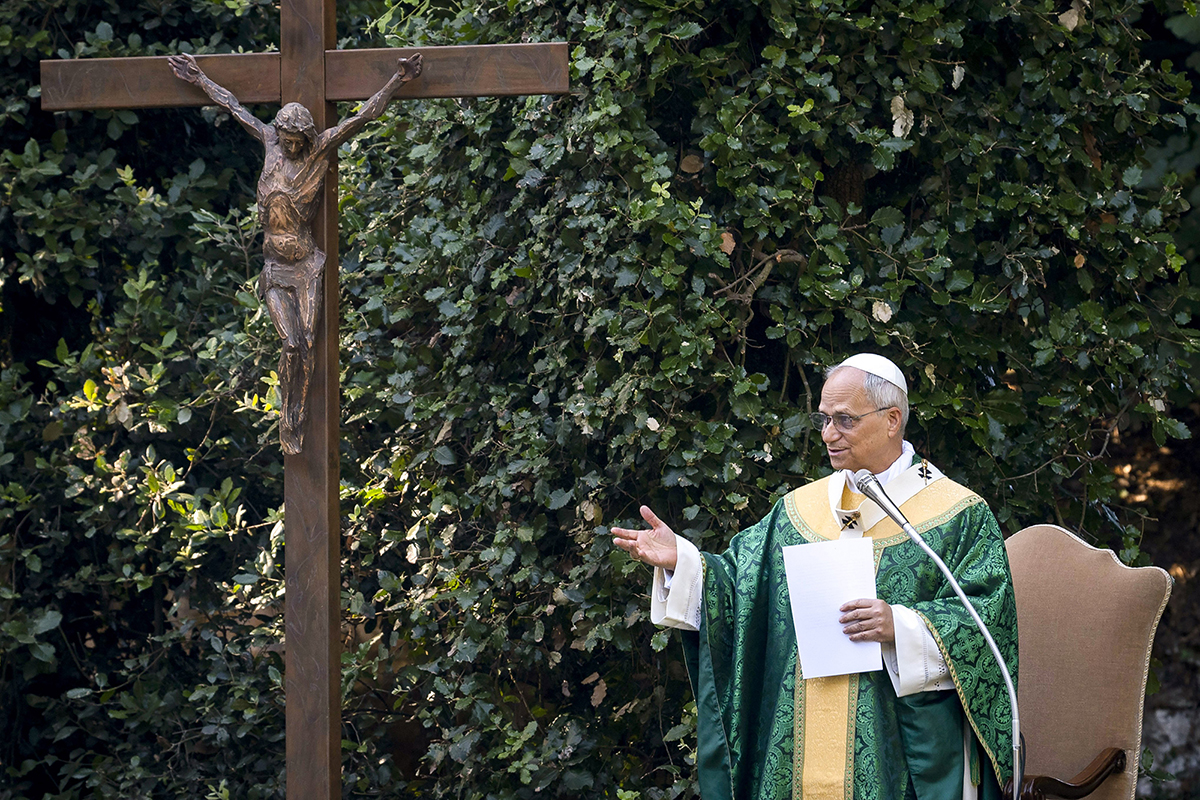DEAR FATHER | The depth of sorrow bears witness to the depth of love
My spouse died this year, and I am so angry with God. How can I move on?

I don’t think it’s an accident that our Lord’s public ministry begins in the context of a wedding. The Bible itself begins with a love story between Adam and Eve (and God). Thus, marriage is the “primordial sacrament.” It has been with us from the very beginning. Moreover, the true meaning of the Book of Revelation is understood through the lens of a “marriage feast” (Revelation 19:9, 21:9, 22:17). At the beginning of salvation history, what do we have? At the height of salvation history? At the end? Marriage.
Another point: Did you know that there has been a study about the heartbeats of couples? The researchers found that when they sat couples a few feet away from each other (without speaking to each other or doing anything else together), their heartbeats would begin to synchronize. They even controlled the experiment with non-couples whose heartbeats did not synchronize. This gives the Lord’s reference to the words of Genesis a new twist: “and the two shall become one flesh,” (Genesis 2:24; Matthew 19:5).
Suffice it to say, there are only a few sorrows in this life that can compete with the depth of the loss of a spouse, especially when, by the grace of God, the couple has lived out their wedding vows faithfully. Indeed, to lose a spouse is not so much “losing someone” as it is “losing part of oneself.” This is not a greeting card or a pious aphorism. This is the fullness of our Lord’s teaching — the two become one.
In the shadow of this suffering, many grieving spouses have approached me asking, “Why?” I simply say, “I don’t know.” Sure, the Church teaches about life after death, original sin and why we all must die, and even teaches about the potential of redemption in suffering. But I do not believe that this is what these grieving spouses want from me in those moments. Perhaps a tear shed and shared says more than a theological treatise, particularly to one in the throes of heartbreak.
Others will ask: “How can I move on?” My typical response is: “Do you really want to?” No, seriously. Think about this for a moment. Do you want to move on so quickly? At the very least, doesn’t the depth of your sorrow bear witness to the depth of your love? Those who love much also grieve much. Those who love little grieve little. It is not unusual for sadness to turn to anger, either. Peruse the psalms. There you will find anger, sadness, frustration, confusion and mourning.
The terrible thing about love is that it makes us vulnerable. It wounds us. In a world of avoidance, maybe acceptance is the answer. In a world that devalues sadness and suffering, we need the Sacred Heart — wounded, bleeding and crowned with thorns. Perhaps the thing is not so much to move on, but rather to discern the sacredness of our tears, the love that sometimes fuels our anger and the faith that it takes to call out to God from the depths of a grieving heart.
Father Sullivan is a priest of the Archdiocese of St. Louis pursuing continuing studies in psychology. He is currently enrolled at Divine Mercy University.
I don’t think it’s an accident that our Lord’s public ministry begins in the context of a wedding. The Bible itself begins with a love story between Adam and Eve … DEAR FATHER | The depth of sorrow bears witness to the depth of love
Subscribe to Read All St. Louis Review Stories
All readers receive 5 stories to read free per month. After that, readers will need to be logged in.
If you are currently receive the St. Louis Review at your home or office, please send your name and address (and subscriber id if you know it) to subscriptions@stlouisreview.com to get your login information.
If you are not currently a subscriber to the St. Louis Review, please contact subscriptions@stlouisreview.com for information on how to subscribe.




